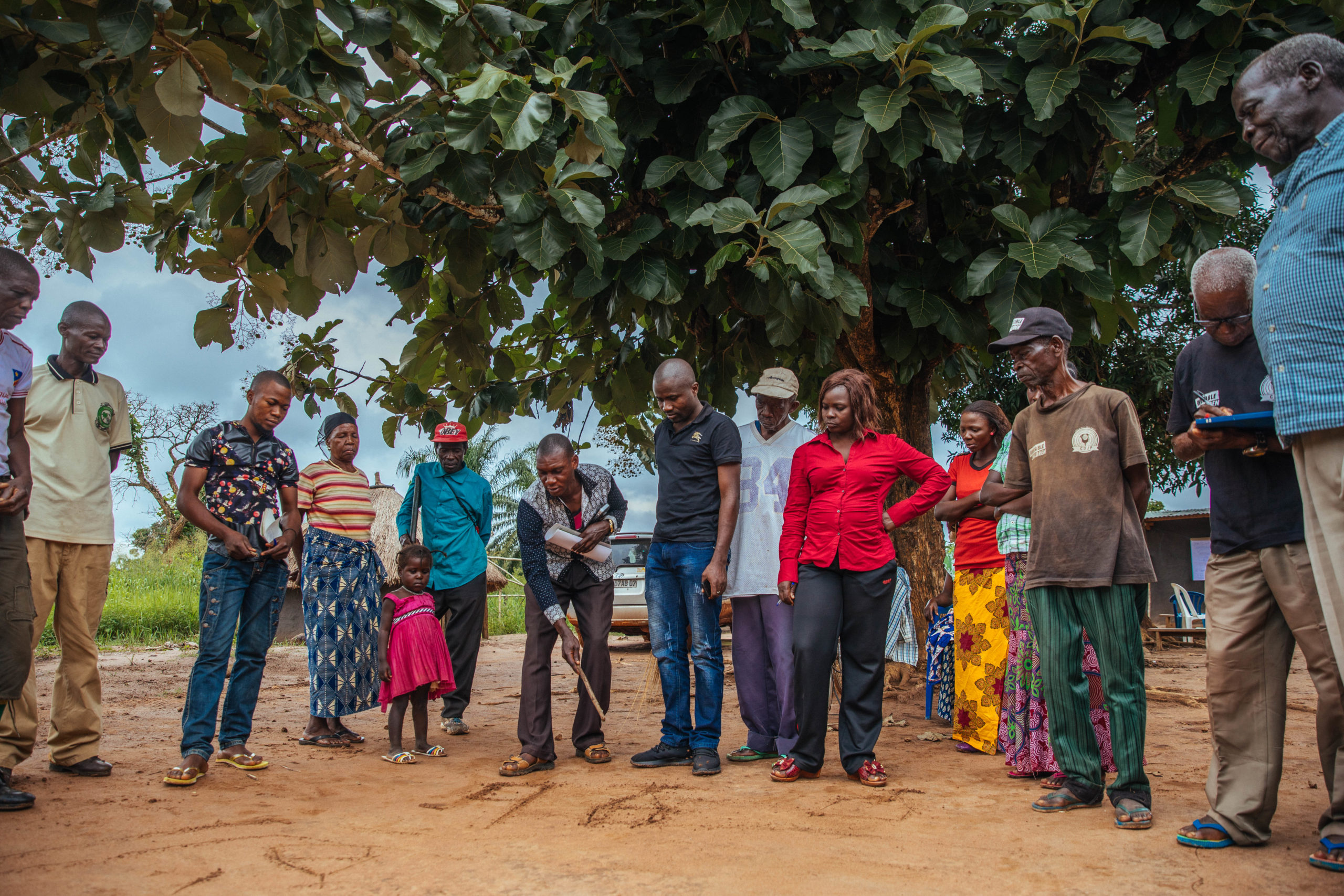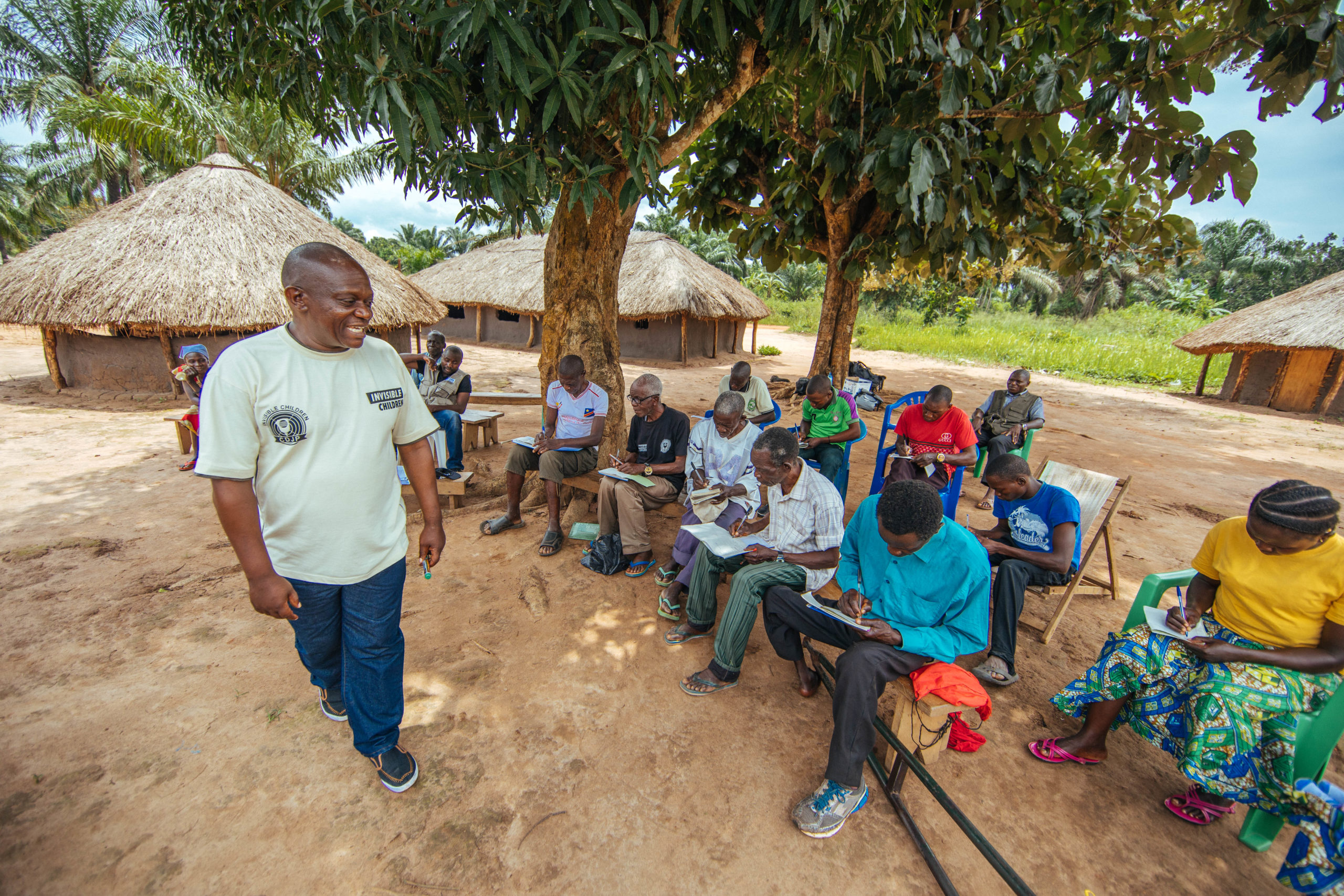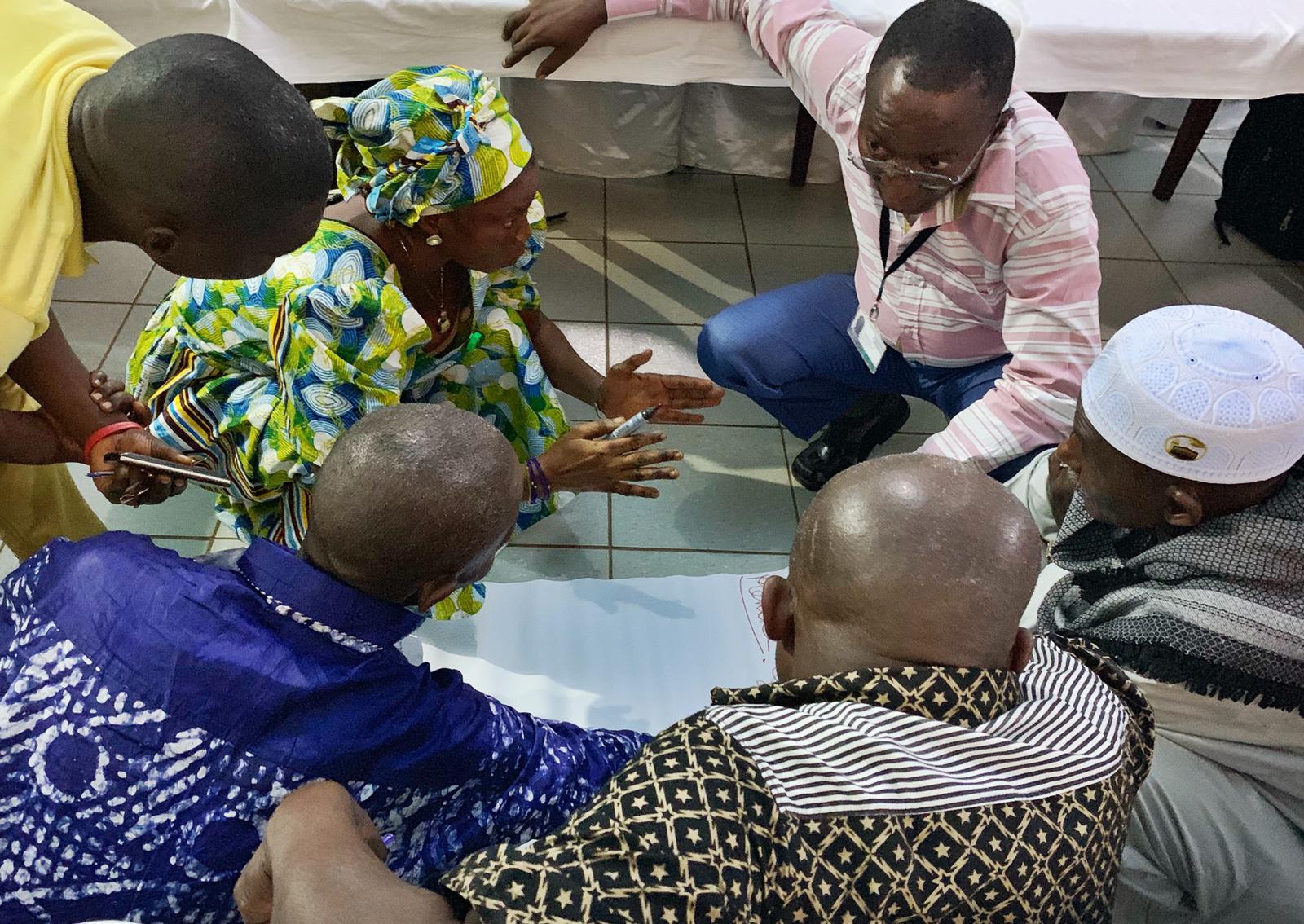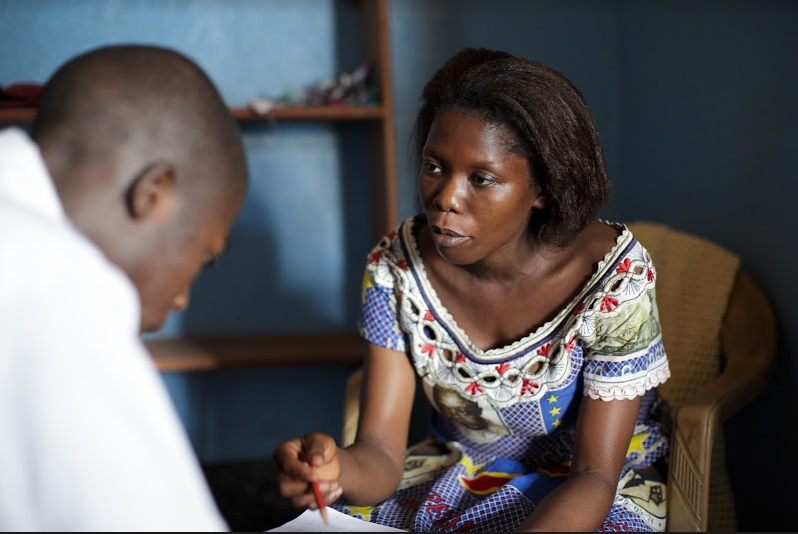Invisible Children has launched a new project to support local peacebuilding efforts in the Central African Republic (CAR) and Sudan. With support from the U.S Department of State, we are working alongside local partners to help establish and advance the work of local Peace Committees in order to reduce violence and support local resilience.
We are working alongside our longtime Central African partner Bria Londo and new Sudanese partners at Malam Darfur Peace and Development to expand our Peace Committee development programs into Sudan for the first time. This is an exciting opportunity to equip local peacebuilders working on both sides of the CAR-Sudan border and make thousands of Central African and Sudanese civilians safer from violent conflict.

Addressing Local Challenges
Communities in the border region between northeastern CAR and South Darfur, Sudan have long suffered from marginalization, extreme poverty, and violence perpetuated by groups like Joseph Kony’s Lord’s Resistance Army (LRA). In addition, clashes between Sudanese pastoral communities and Central African farmers are common, while armed group activities fuel cross-border interethnic violence. Despite these challenges, there has been little investment in peacebuilding activities in the region.
Through the Preventing Atrocities and Connecting Communities Project, Invisible Children and local partners are taking steps to support communities facing these challenges. By reinforcing the work of existing Peace Committees and helping to establish others in the area, this project will expand on nearly a decade of Invisible Children’s successful community-based violence prevention and early response programs.

Reducing Vulnerability through Early Warning and Response and Local Peace Committees
Through this project, Invisible Children will help to establish and build the capacity of several Peace Committees in remote communities along the border between CAR and Sudan, adding to more than 160 Peace Committees supported by Invisible Children across eastern CAR, northeastern Democratic Republic of Congo (DRC), and South Sudan.
Invisible Children connects Peace Committees to tools that allow them to share information with each other about local security threats. Along with providing access to information sharing tools, we are working with Peace Committees to create community plans for how to respond to threats to their safety. These action plans also include a variety of strategies for proactively preventing the possibility of violence.

Creating Cross-border Constituencies for Peacebuilding
Communities on both sides of the CAR-Sudan border experience many of the same challenges that threaten the safety of their communities. Because of this, it is important for communities on either side of the border to collaborate, exchange ideas and information, and learn from one another. By connecting Central African and Sudanese communities to one another, Invisible Children is enabling greater collaboration.
As part of the project, communities will be equipped to share life-saving information with each other and to participate in cross-border peacebuilding initiatives. Members of local Peace Committees and civil society will be able work together to address regional conflict, sensitize their communities on violence prevention and conflict mediation strategies that are essential to cross-border peacebuilding.

Strengthening Community Resilience
In addition to supporting local peacebuilding efforts in CAR and Sudan, Invisible Children is also investing in locally-based economic and social projects designed to strengthen the resilience of communities and address underlying causes of violent conflict.
Through the Preventing Atrocities and Connecting Communities Project, Invisible Children is investing in small-scale income-generating projects with local Peace Committees. These projects are designed to create opportunities for Peace Committees to become self-reliant and able to maintain peacebuilding initiatives without perpetual outside investments. Peace Committees will also be equipped to support income-generating activities that support the broader community population. This will help address economic drivers of conflict.
In addition, Invisible Children is equipping Peace Committees to address the psychosocial needs of the local community. Due to a severe lack of access to mental health resources and infrastructure in the region, Invisible Children is working with local Peace Committees to establish peer-to-peer mechanisms for addressing trauma caused by violent conflict. Invisible Children’s mental health professionals will provide local Peace Committees and health centers on trauma awareness, Psychological First Aid, coping mechanisms, and other basic mental health and psychosocial services skills.
Support for Local Peacebuilding Prevents Atrocities
By equipping and empowering local partners and Peace Committees to collaborate and learn through exchange, we are helping communities in northeastern CAR and South Darfur more effectively keep each other safe. Not only that, these activities help to elevate local perspectives and incorporate them into broader atrocity prevention and conflict mitigation efforts. As a result, conflict prevention and mediation in CAR and Sudan will be more effective, equitable, just, and sustainable.
Your support enables Invisible Children to continue equipping communities with the tools they need to make their communities safer. Donate to support our programs today.
Think people should hear about this?